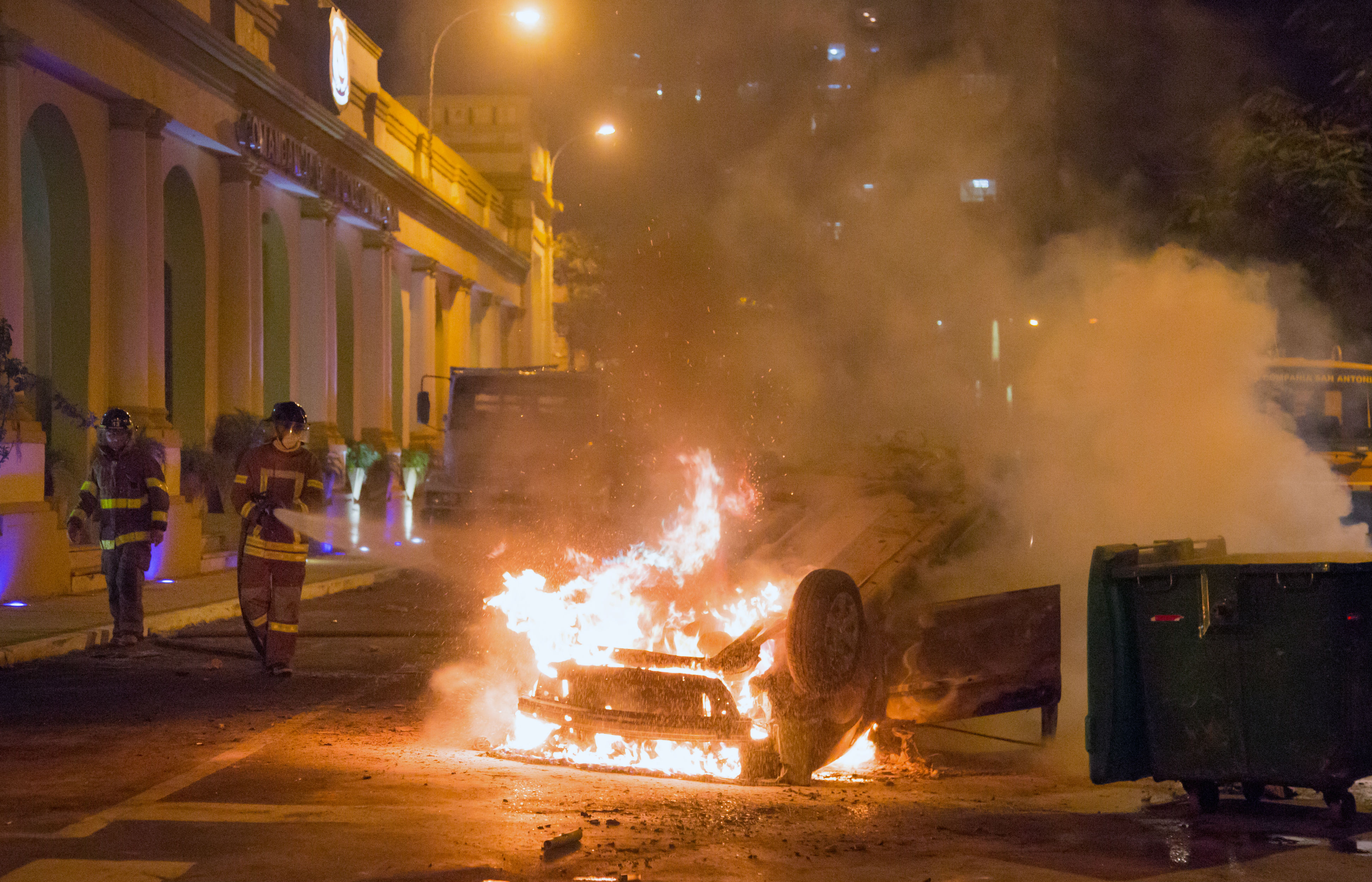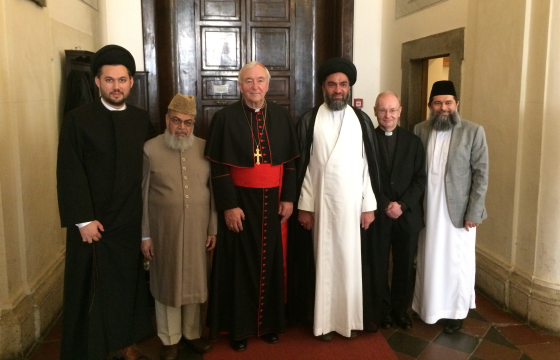Pope Francis should speak out about the plight of persecuted Christians when he visits Egypt, according to an Imam who visited the pontiff in the Vatican today. Imam Ibrahim Mogra, an alumnus of Al-Azhar university and Assistant Secretary General of the Muslim Council of Britain, was among four UK Muslim leaders who on Wednesday met with Francis, an event which came exactly a fortnight after the Westminster terror attack.
Speaking to The Tablet after the papal audience he stressed that violence in the name of God is “totally un-Islamic” and that extremists were incorrectly manipulating the Koran’s teaching to justify evil actions.
Following their meeting with Francis the imams held discussions with Cardinal Jean-Louis Tauran, the President of the Pontifical Council for Inter-Religious dialogue, where they impressed upon him the need for the Pope to speak out for embattled Christian minorities when the pontiff travels to Egypt next month.
“I think his visit to Egypt is going to be an historic development in Christian-Muslim relations, and I’m sure having read what I’ve read about his holiness he will not remain silent [on persecution of Christians],” Imam Mogra explained during an interview at the Venerable English College, in Rome.
“Through our meetings with Cardinal Tauran, I’ve requested that he [the Pope] must raise the questions of Christian minorities in Muslim countries. And the scholars at Al-Azhar, and the Grand Imams and the Grand Muftis and their team must speak out against the mistreatment of minorities, particularly Christians in Egypt and in other parts of the Middle East.”
On 28-29 April the Pope will be in Egypt for a crucial bridge-building exercise with the Islamic world: he is due to address a conference on peace at Cairo’s famous Al-Azhar university, the major centre for Sunni thinking. Francis will also meet with the Coptic Orthodox Pope Tawadros II, who leads a community that have recently come under attack from suspected Islamic militants, with many expecting him to mention the plight of Egypt’s Christians.
Imam Mogra stressed that Egypt had a “wonderful history of co-existence", pointing out that the Coptic Christian presence was there before Muslims arrived.
“Sadly things have really deteriorated,” he explained. “I’m sure His Holiness will register his concern and remind Muslim leaders in Egypt and political leaders that it is their religious and political duties to safeguard the religious rights - and the human rights - of the minority communities.”
But Francis’ visit will require some delicate diplomacy: in 2011 Egypt and Al-Azhar broke off relations with the Holy See after Benedict XVI called for better protection for the country’s Christian minority and for comments that were deemed offensive to Muslims.
The delegation of Imams were accompanied to the Vatican by Cardinal Vincent Nichols who said the visit was designed to show an “authentic” voice of Islam after Khalid Masood, a 52-year-old Muslim convert with a criminal past, ploughed a car into pedestrians on Westminster Bridge before storming into Westminster Palace, the Houses of Parliament, and stabbing a policeman to death.
“One of the objectives I have is that through this meeting the voice of authentic Islam might be heard,” he told The Tablet. “There’s so much noise around the presence of Islam in Western Europe and the United Kingdom, that we [need to] begin to listen to what the true leadership of Islam aspires to, and is committed to and wants to achieve.”
The Archbishop of Westminster has long been involved in inter-faith dialogue, something he was closely engaged with during his time as Archbishop of Birmingham, particularly following the terrorist attacks in the US on 11 September 2001 (9/11).
The other imams meeting the Pope included Syed Ali Raza Rizvi, a prominent Shia cleric, Muhammad Shahid Raza, Chairman of the British Muslim Forum and Sayed Ali Abbas Razawi, Director-General of the Scottish Ahlul Bayt Society. Razawi, a senior Shia cleric, gave a lecture at the English College the night before the papal audience titled “The Ontological Mercy and its divine reflections”.
The group arrived in Rome on Tuesday and were present at the priest-training college to meet the Prince of Wales who paid his first ever visit to the “venerabile” before travelling to the Vatican for an audience with Francis. The Prince of Wales has long been a strong advocate for interfaith dialogue, while he’s also spoken up for Christians being persecuted in the Middle East.
During Francis’ meeting with the Imams the Pope stressed the importance of listening to one another, a message which Cardinal Nichols said had a profound impact on everyone there.
“The capacity to listen, this is very important,” the Pope told them. “It is interesting: when people have this capacity they speak in a soft and calm tone. When they do not have this, they speak loudly and even shout. Among brothers, we must all speak, listen to each other and speak slowly, calmly.”
Imam Mogra said that Francis’s voice was listened to by Islamic counties while describing the encounter with the Pope as “a really moving moment” adding “I can’t believe I was there”. The Pope had won over Muslims, he said, by stressing that Islam is a religion of peace, something which he hoped his fellow believers would take note of.
“He’s a highly respected leader in the Muslim world,” the Imam explained. “He has been fair, he has been principled, he has demonstrated Christianity. He’s displaying what a true Christian is, and that penetrates hearts, minds and borders.”
Imam Mogra stressed that all religions had “our equal humanity, compassion and kindness” at their heart while saying that Muslims also followed the “golden rule of doing unto others as you would have done to you”.
Blaming Islam for religious terrorism was the same as blaming Leicester City football club for one of their supporters using the name of their club to commit violent acts. And he said that passages in the Koran which suggest violent struggle were written at a time when Muslims were a persecuted minority and simply advocated self-defence.
“Sadly some followers of all of our religions misuse some of the teachers, or misinterpret them,” he explained. “Or they try to use religion to justify their evil. If you have Muslims shouting God’s name in a murderous act I don’t believe that is caused by Islam: that is a totally un-Islamic act.”
He went on: “You can’t blame Islam as a religion for the actions of evil Muslims. Likewise, I would be the first to object anyone blaming Judaism for the action of settlers in the occupied territories, or people blaming Christianity for what Christians have done in the Central African Republic, or blaming Hinduism for what Hindus did in Gujarat or Buddhism for what Buddhists are doing in Myanmar.”
The driving cause for the violence, the imam stressed, were political agendas, power struggles, and land and if a Islamic terrorist believed he was serving God he was “severely misguided” and will be severely punished by God.
PICTURE - From left: Sayed Ali Abbas Razawi, Director-General of the Scottish Ahlul Bayt Society, Muhammad Shahid Raza, Chairman of the British Muslim Forum, Cardinal Vincent Nichols, Syed Ali Raza Rizvi, a prominent Shia cleric, Mgr Philip Whitmore, Rector of the Venerable English College Rome, and Imam Ibrahim Mogra at the school after meeting Pope Francis today (5 April)




 Loading ...
Loading ...